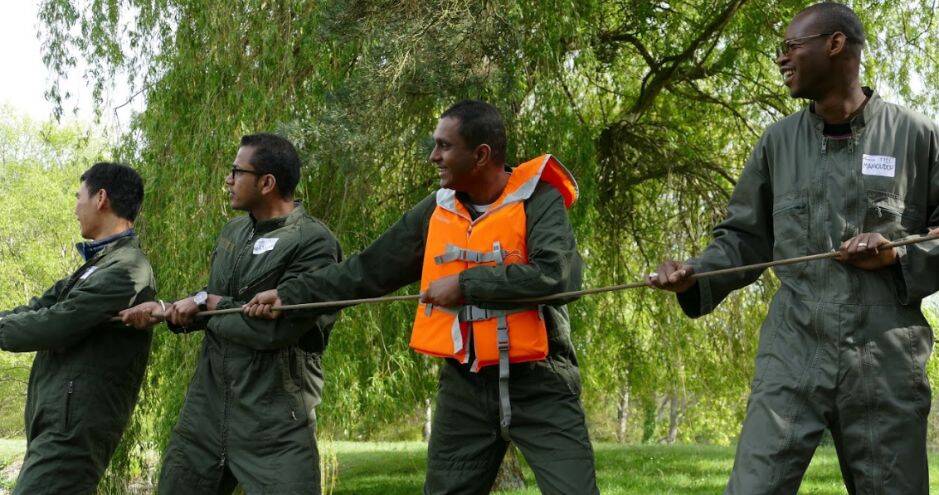Student Voice: Ajith Sebastian
Ajith Sebastian, MBA ’18, discusses his HEC Paris MBA journey and vision. President of Net Impact Club, he aims to continue impactful case competitions. Post-MBA, he targets VC and impact investment careers. He sees potential in African entrepreneurship and agriculture. Ajith emphasizes self-investment and advises prospective MBA students to introspect and connect with alumni.

Hailing from Johannesburg, Ajith Sebastian joined the HEC Paris MBA in January 2017, and he recently sat down with us to discuss his MBA journey and vision. Ajith is the president of the Net Impact Club and is also a board member of the Africa Club.
What made you decide to do an MBA, and why did you choose HEC Paris?
I always planned on doing an MBA and I did my GMAT back in 2012. However, it was only in 2015 that I decided to start applying to business schools. Thinking back, I simply was not ready to take the next step and at the time, and was finding opportunities at work exciting. In my last role for Barclays Africa, I worked in the corporate banking section and had a very broad exposure to businesses across Africa. This helped me develop my understanding of different business strategies across the continent. However, if we talk about Africa, it is a continent with strategy approaches as broad and diverse as its people.
There were three key reasons why I chose the HEC Paris MBA: St Cyr, MBAT and the alumni I met. However, there were three other elements that also persuaded me:
- In the search for an MBA, European Schools were my focus point, because of the shorter program length and the age demographic of the schools. I felt that I would fit in with the HEC Paris MBA population, and I could learn as much as I would contribute.
- My first exposure to the school was when I met an HEC representative at an MBA fair in Sandton City. I asked her the same question I had asked every other school at the fair: “Give me one reason why I should not go to your local competitor school?” She was the only representative that refused to say anything negative about their competitors. Instead, our conversation focused on if HEC could be a good fit for me – and that got me very curious about the school. I started meeting a few more people, and slowly but surely I was in a position where it was either HEC Paris or nothing.
- One thing that I am very conscious of is that my experience is predominantly in Anglophone Africa. I knew that HEC Paris could help me bridge the gap between Anglophone and Francophone Africa.
Congratulations on becoming the President of the Net Impact Club! What are your ideas for the future of this club?
We will definitely continue working on case competitions. I took part in an international case competition on impact investment. We worked with four different entrepreneurs and pitched to an investment board on how we would fund these entrepreneurs. It was the fastest learning curve I had ever experienced. We went from reading a basic pitch in the morning all the way to presenting term sheets to the entrepreneurs and seasoned investors by the end of the day.
What are your career objectives post-MBA?
VC investment firms would be interesting, that’s what I’ve always had in mind. However, since I joined HEC Paris, this goal has become more defined and I am now specifically looking at impact investment.
How about career opportunities for MBAs in Africa or within companies who operate in Africa?
I think the trends will be the same to what you find globally. However, the opportunity for entrepreneurship – particularly in terms of businesses that can employ a big number of people – can have a big impact on the structure and nature of the African job market.
I’m also very curious to see how the agriculture industry evolves. Specifically given the amount of fertile land that we have on the continent that is still underutilized. It is a massive opportunity.
During the HEC Africa Days, one speaker talked of a momentum that African MBA graduates from international business schools have. Is there increasing interest by Europe-based companies who operate on the African continent?
Absolutely. Nigeria is a great example, where a lot of leaders in the biggest companies are MBA graduates who spent a year or two working for a company overseas before moving back home. I expect that we’ll see more and more of that development across the continent.
ROI is an important part of choosing an MBA program. How did you approach this question, given the volatility of the South African Rand?
The one thing I’d say is that funding is available. There are many channels – scholarships, grants or even loans. I personally funded mine through Prodigy Finance, and I see it as an investment in myself. In the same way as I would see going and buying a house or investing in a certain stock. The big difference though: the performance of my investment is up to me.
Any general advice you would give someone who’s considering an MBA degree?
My advice is to go through the application form. Just writing out the essay questions is a big learning curve about yourself. It tests whether this is what you really want, what you are really looking for. It was a massive journey for me from the moment I wrote the GMAT, to every application that I started – whether I finished them or not. I think this experience will be similar to everyone who does it, but their journey will be different.
The second piece of advice is to talk to alumni. That way, you can see not only what they did, but whether you would actually like to have studied with them.